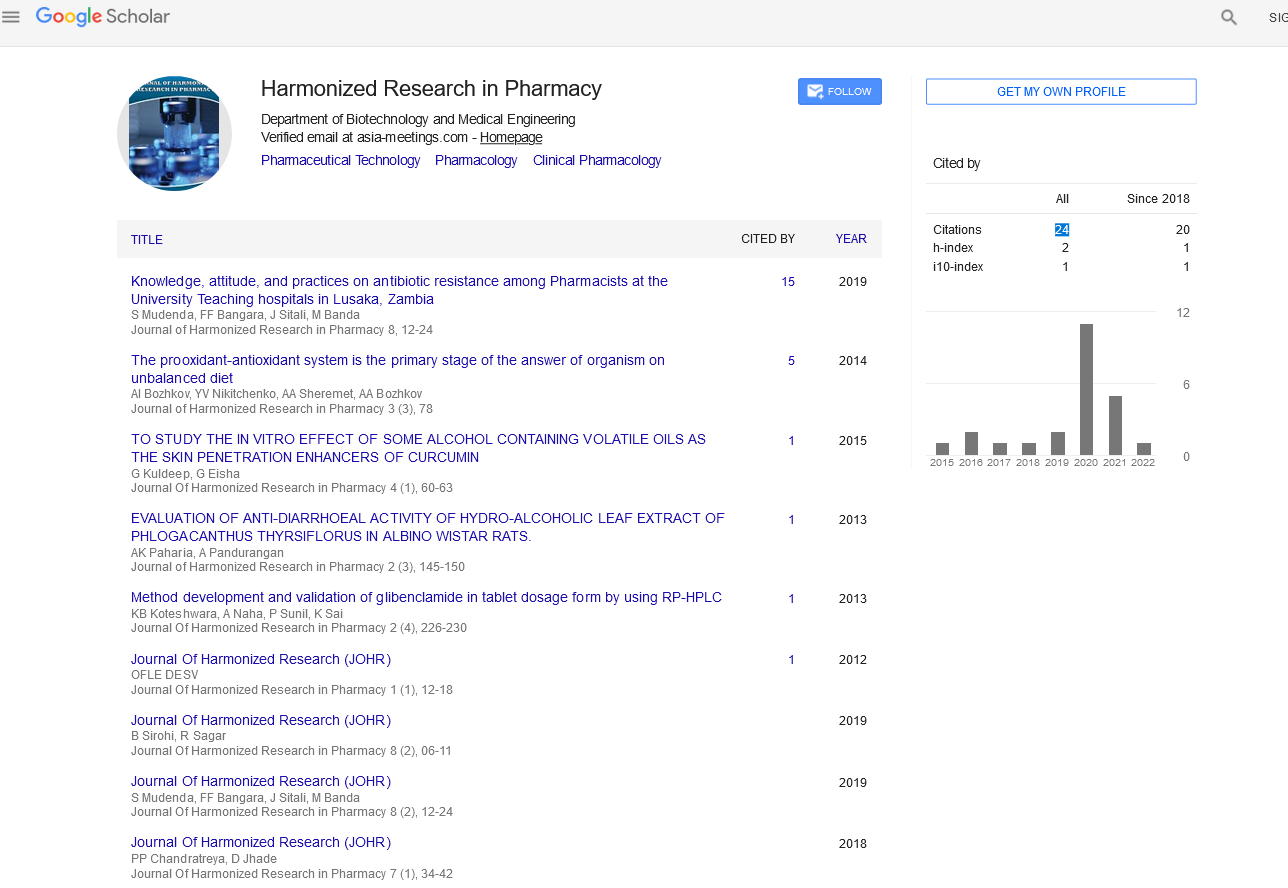Editorial - (2021) Volume 10, Issue 2
IMPORTANCE OF CLINICAL AND HOSPITAL PHARMACY
Carlos Chinhu*Received: Dec 06, 2021
Description
The efficient use of medicines plays a central role in providing patient-centric, cost-effective and quality care. Clinical pharmacy services for patient outcomes. In a pharmacy white paper, the Ministry of Health recognizes that pharmacist clinical skills and expertise are an integral part of providing better service to patients, and the role of patients in optimizing drug use. I repeated this to identify. Examples include reduced drug-related adverse events, reduced treatment costs, improved patient outcomes, shorter stays.
Clinical pharmacies are a division of pharmacies where clinical pharmacists provide direct patient care, optimizing drug use and promoting health, well-being, and disease prevention. Clinical pharmacists serve patients in all medical settings, but the movement of clinical pharmacies originally started in hospitals and clinics. Clinical pharmacists often work with doctors, doctor assistants, nurses, and other healthcare professionals. A clinical pharmacist can enter into a formal joint contract with another healthcare provider, usually one or more doctors. This allows the pharmacist to prescribe the drug and order a clinical test.
Role in the health care system
Within the healthcare system, clinical pharmacists are specialists in the therapeutic use of drugs. They regularly provide patients and other healthcare professionals with drug therapy evaluations and recommendations. Clinical pharmacists are the primary source of scientific information and advice on the use of safe, appropriate and cost-effective medicines. Clinical pharmacists also make themselves more generally available. Previously, access to clinical pharmacists was limited to hospitals, clinics, or educational institutions. However, clinical pharmacists make available through the dosing information hotline and review the dosing list to avoid foreseeable future dosing mistakes. Clinical pharmacists are routinely involved in the direct care of patients in hospitals and clinics. It also develops specialized post-registration training, specialized curriculum for staff development, provides national organizations and the Ministry of Health with expertise in drug use, and develops drug guidelines for use in the therapeutic field.
Role of clinical pharmacist
Clinical pharmacists are specialists in the therapeutic use of medicines in the medical team and can play a variety of roles, including:
• Evaluate medications and make appropriate recommendations to patients or healthcare professionals.
• Provide evidence-based information and advice on the safe and effective use of medicines.
• Identify untreated health problems that can be treated with medication.
• Monitor patient progress with medication and make recommendations related to changes.
• Counsel patients about the best way to take medication.
• Support for direct patient care in hospitals and medical institutions.
• Development of post-registration professional development requirements for governing bodies.
Pharmacokinetics and therapeutic level monitoring
Pharmacokinetics deals with the absorption, distribution, metabolism, and excretion of a patient’s drug. With sufficient knowledge of the pharmacokinetic profiles of the various drugs, pharmacists can assess the dosing requirements of specific drugs in patients of extreme age and in the presence of renal and hepatic dysfunction. Clinically significant drug interactions and side effects may be predicted. Calculations of doses of aminoglycoside antibiotics are usually performed using pharmacokinetic principles.
Conclusion
Clinical pharmacies are interested in improving drug use, but despite more than 20 years of clinical pharmacy practice in the United Kingdom and the United States, they improve the safe use of drugs and their iatrogenic status or drugs. There is little evidence that it has reduced the associated side effects. Side effects of drugs are known to be important causes of morbidity and morale. Clinical pharmacy services are expected to reduce the incidence of such events, but no one has evaluated this hypothesis in detail. Drug-related illness is one of the leading causes of hospitalization.

Google Scholar citation report
Citations : 147
Journal of Harmonized Research in Pharmacy received 147 citations as per google scholar report









